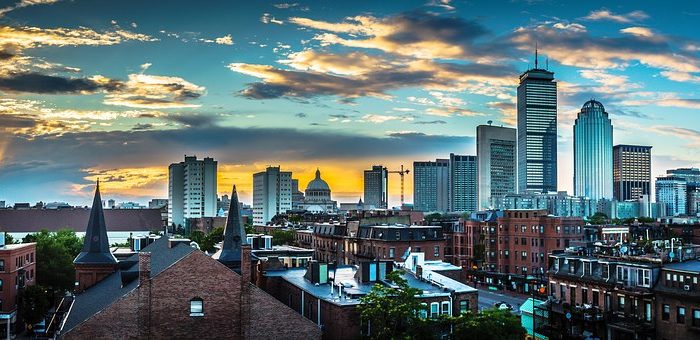Boston is a global city. Here’s why that status is threatened
Boston is often touted as a “global city.” A quick Google search will tell you that Boston is one of the best cities in the world for everything from quality of life to tech startups to commercial real estate investment. While traditionally an economic indicator, there’s now a general understanding that global cities have certain social and cultural institutions by definition.
A smattering of global city rankings place Boston at 15th, 24th, 25th, and 46th. Others define a global city as having at least a million residents, under which parameter Boston doesn’t even qualify. Any index that tries to encapsulate dozens of indicators will miss some important nuances. Even if everyone suddenly agreed on the definition of a global city, weighting such factors as “cultural amenities” and “political engagement” will always be subjective.
Perhaps getting Boston to number 1 on any of these rankings is a vapid goal. Implicit in the term “global city” is leadership in globalization, a term that has been controversial of late. Still, an ability to attract workers, corporations, and visitors from other parts of the world can hardly be seen as a bad thing. Instead of talking about how to ascend flawed rankings of global cities, Boston’s leaders (political, economic, and cultural alike) should frame the regional dialogue around the City’s future role in the global economy.
The institutions of higher education in Boston present an amazing opportunity to foster innovation in burgeoning industries like computer systems design and health care. The City should actively work to expand its array of cultural offerings to better retain recent graduates.
Political influence is another area with room for improvement. Boston needs to invest in local institutions that seek to engage residents on deep-seated social and equity problems. Facilitating trust between citizens and law enforcement will help reduce crime as well as make Boston a more welcoming place for immigrants. The conversation on social issues should revolve around what’s best for the city as a whole, instead of pitting certain groups of residents against others.
Raising social capital and facilitating political engagement are tall tasks, but in reality Boston is already a world leader in several other metrics of “global cities”. The City hosted an International Mayors Climate Summit earlier this month, and has recently topped rankings for economic performance and competitiveness in the tech industry. All of these factors indicate that Boston is both resourceful and influential on a world stage.
That said, there are other indicators that Boston’s current appeal as a global city is under threat. The region’s infrastructure and fiscal struggles have contributed to a slip in U.S. News state rankings. The MBTA struggles to operate during snow storms, has delayed maintenance and repairs to a dangerous extent, and has even garnered calls for a complete overhaul. Funding gaps and maintenance backlogs have led to tragic – though preventable – accidents.
The entire region’s economy is contingent on access to safe, reliable, well-funded transportation, and future growth will depend largely on the reliability of Boston’s infrastructure and the efficiency with which repairs and expansions are conducted. In turn, the region’s economic performance and influence informs Boston’s status as a global city.
Another threat to the sustainability of the region’s international reputation is housing affordability.
Boston’s digital entrepreneurship rating is higher than San Francisco’s largely because of San Francisco’s worsening quality of life, driven by a rising cost of living. For Boston and San Francisco alike, housing makes the biggest impact in determining who can afford to live there. Mayor Walsh plans on adding some 53,000 units of housing in the City before 2030, an ambitious project designed to limit the gentrification of historic neighborhoods and prevent the displacement of lower- and middle-income families. Efforts to maintain high livability will further encourage international business, tourism, and a diverse and accessible economy.
Rankings of cities based on their cosmopolitanism or “globalness” may be meaningless. However, the components of these rankings reveal social and economic trends that are worthy of discussion. Social and cultural institutions help draw and retain a diverse pool of residents to the City, making seemingly wasteful investments like public art worthwhile. Political institutions help keep leaders accountable while empowering locals to have a voice in governance themselves. The economy of Boston has shown great resilience, but it also relies on the accessibility provided by public transportation, as well as the ability of people of all income levels to live in close proximity.
New York, Tokyo, and London will likely achieve higher “global city” rankings than Boston for the foreseeable future. They are all world-class hubs for culture, financial power, and international business ventures. But Boston can create a global niche of its own by renewing its commitment to the wellbeing of its residents, both present and future.
Andrew Mikula is a rising senior at Bates College majoring in economics. Since joining Pioneer Institute as the Roger Perry Government Transparency intern, he has focused on using Pioneer’s MassAnalysis database to analyze social and economic issues. He aspires to be an urban planner upon graduation.



